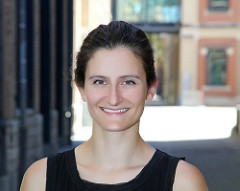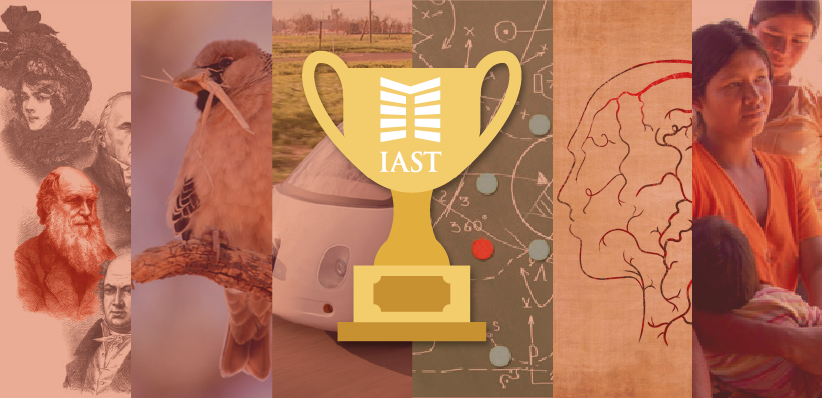
IAST strives to create bridges between disciplines. To facilitate cross-disciplinary fertilization, we launch an annual competition in recognition of outstanding multidisciplinary research projects.
The 2025 prize has been awarded to a project entitled “Retributive and compensatory justice across small-and large-scale societies” proposed by Léo Fitouchi, Haneul Jang and Catherine Molho.
The winning team in 2024 included: Cécile Sarabian (Cognitive Ecologist), Haneul Jang (Anthropologist), Romain Duda (Ethnoecologist), Anne Laudisoit (Disease ecologist).
Their project entitled Behavioral adaptations in the face of ubiquitous disease risk: Case study with a BaYaka community in the Congo Basin
This year, one team was awarded.
Piret Avila (IAST), Lauren Bader (IAST), Marion Bourjade (Jean Jaures Toulouse University), Haneul Jang (Max Planck Institute), Sarah Myers (Max Planck Institute) and Ilaria Pretelli (IAST) for their project entitled "Cooperative Breeding and Children as Helpers:, An Interdisciplinary, Cross-Cultural Approach"
Congratulations to them!
This year, 2 teams were awarded.
- Péter Bayer, Marion Hoffman, Marijn Keijzer and Maria Kleshnina for their project untitled "Understanding the formation and success of groups through game theory and network science"
- Bence Bago, Sebastian Thieme and Zoe Purcell for their project untitled "Why do people disbelieve in science?"
The 2021 prize has been awarded to a project entitled "The Evolution of Institutions for Collective Action" proposed by Maxime Derex, Catherine Molho, Jorge Peña and Manvir Singh.
The project aims to contribute to the understanding of the bottom-up emergence and cultural evolution of institutions for collective action. Across three closely related sub-projects, we will use an interdisciplinary approach combining game-theoretic models, decision-making experiments, and ethnographic research. These sub-projects aim to reexamine theoretical models of sanctioning institutions; to investigate experimentally the within-group emergence and between-group transmission of institutional solutions; and to study the processes by which legal innovations arise and spread in real-world settings.
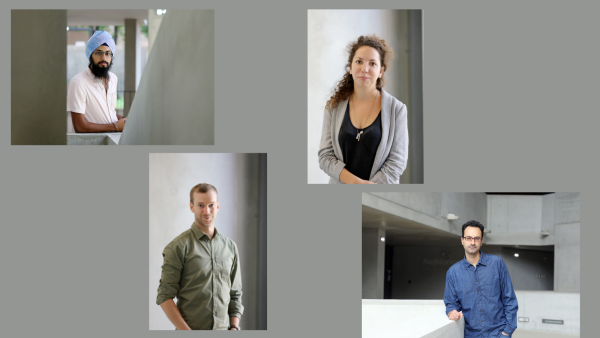
This year, three projects were awarded:
"The Cultural Evolution of Thoughts" proposed by Jane Conway and Maxime Derex. The project proposes that cognitive representations (or "thoughts") can be shaped by social learning and cultural evolution, and aims to test this idea in the lab on two groups of human participants: individuals with Autism Spectrum Disorder and neurotypical individuals. The project will involve researchers from five different disciplines: evolutionary biology, evolutionary anthropology, experimental psychology, psychiatry, and computational neuroscience.
"TEAM-3PP --- Testing Evolutionary Alternative Models of Third-Party Punishment: A Multidisciplinary Approach" proposed by Francesca De Petrillo, Zachary Garfield, Alberto Micheletti and Catherine Molho. The project aims to test three different hypotheses (kin selection, reciprocal altruism, and strong reciprocity) for the origins of third-party punishment as a mechanism for the enforcement of cooperation in humans. The project involves three different disciplines (evolutionary biology, psychology, and anthropology) and combines experimental, ethnographic, and theoretical approaches.
"Who became a Nazi? Structured Database of the German Denazification Questionnaires, 1945 – 1949" proposed by Victor Gay and Jan Stuckatz. The proposal is a first step of a larger project consisting in digitalizing a large database of the Nazi denazification files, which is based on questionnaires of former Nazi Party members after the war. Collecting this panel data will help answer questions such as: Which were the life events (e.g., unemployment) that led to NSDAP membership, and among which sociodemographic groups? Did individuals benefit economically from NSDAP membership? The project involves researchers from political science, economic history, and history.
The prize has been awarded to a project entitled “Cognitive and Emotional Processes Behind Susceptibility to Political Misinformation in the US and Nigeria”, proposed by Bence Bago and Leah Rosenzweig.
The committee has also been very impressed by a project entitled “Biological and Psychological Origins of the Varieties of Nationalism: A Dynamic Theory and Lab Experiments”, proposed by Slimane Dridi, Alberto Micheletti, and Saurabh Pant.
Harilanto Razafindrazaka (IAST), Astrid Hopfensitz (IAST), Denis Pierron (AMIS: Laboratoire d’Anthropologie et Imagerie de Synthèse) and Arnaud Tognetti (Division of Psychology, Karolinska Institutet, Stockholm)
were awarded for their project:
BLOOD-COOP: a genome wide study of the altruistic motivation of blood donors
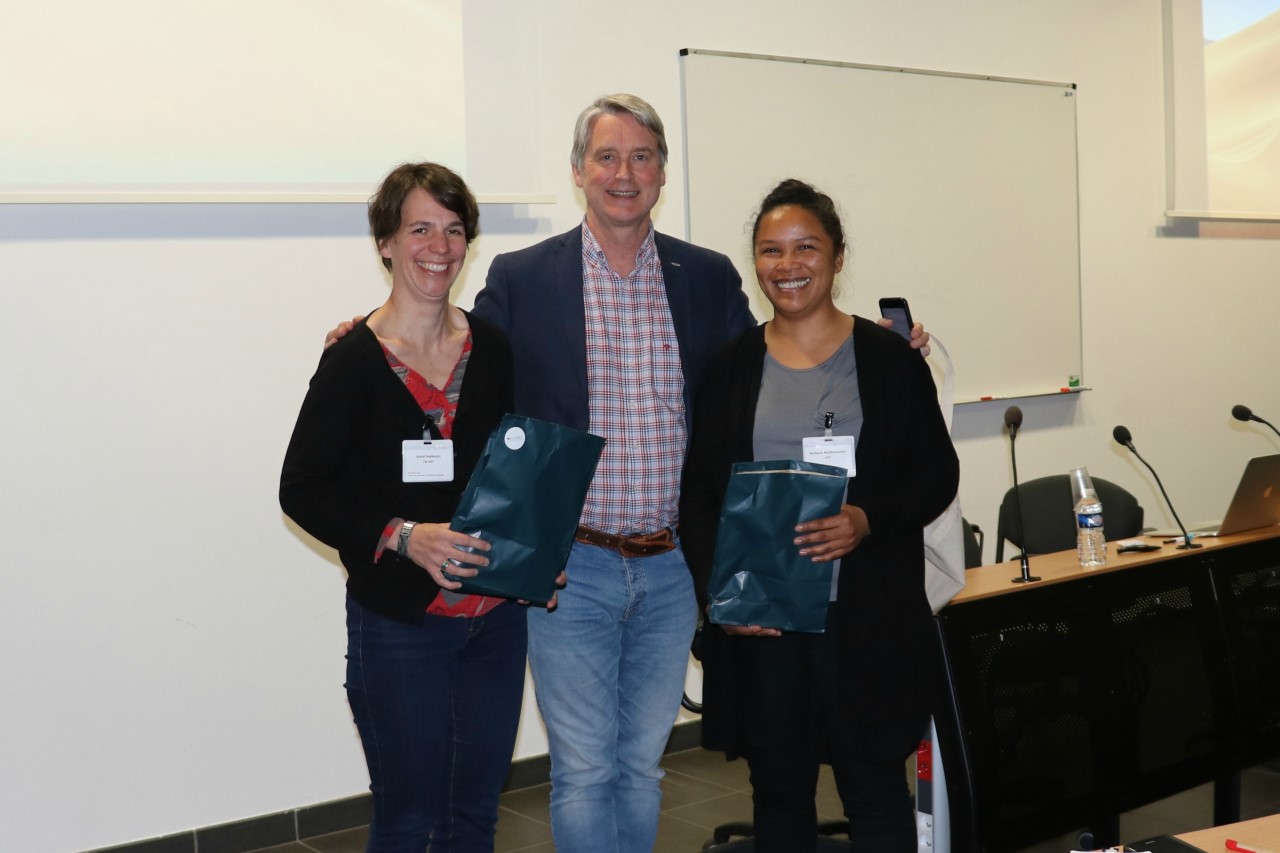
Astrid and Harilanto with Paul Seabright, IAST Director
In 2017, the prize was shared between two teams:
- Alice Baniel & Luke Glowacki: Understanding male-female aggression in mammals and humans using a comparative approach
- Mohamed Saleh & Carlos Velasco: Parliamentary elites in autocracies and their lack of support for democracy: the case of Egypt
Congratulations to both teams!
First Project: "Developmental Origins of Economic Preferences"
The first winning team in 2016 included:
from the IAST : Jeanne Bovet, Jonathan Stieglitz and Boris Van Leeuwen
and also researchers from other labs: Gideon Nave (Wharton School, University of Pennsylvania), Paul Smeets (Department of Finance, Maastricht University) and Andrew J.O. Whitehouse (Telethon Kids Institute, University of Western Australia)
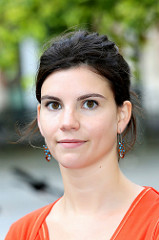
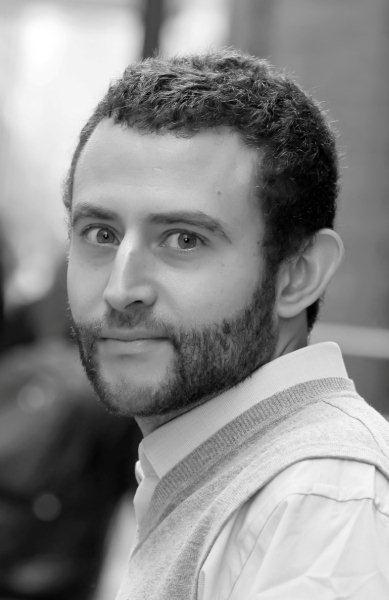


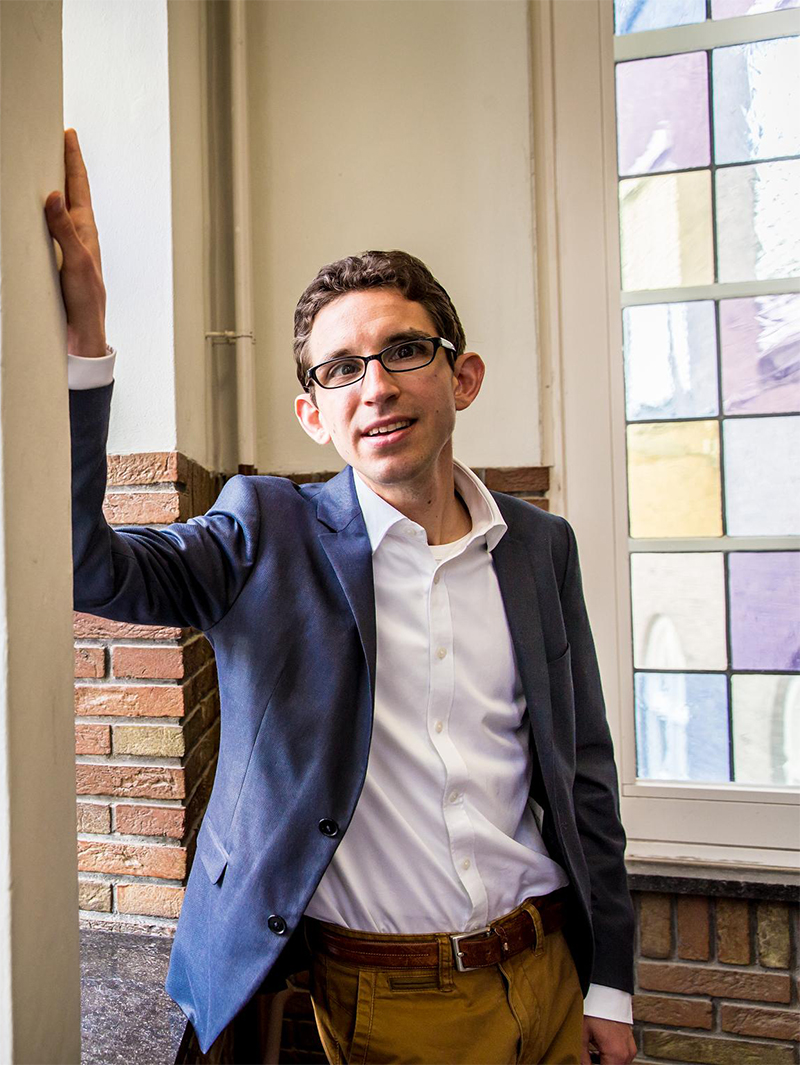

Second Project: "Who Cares? Quadratic Voting for Survey Research"
The second winning team in 2016 included:
from the IAST : Charlotte Cavaillé and Daniel Chen
and also researchers from other labs: Alisha Holland, from Princeton University and David Rothschild at Microsoft Research
